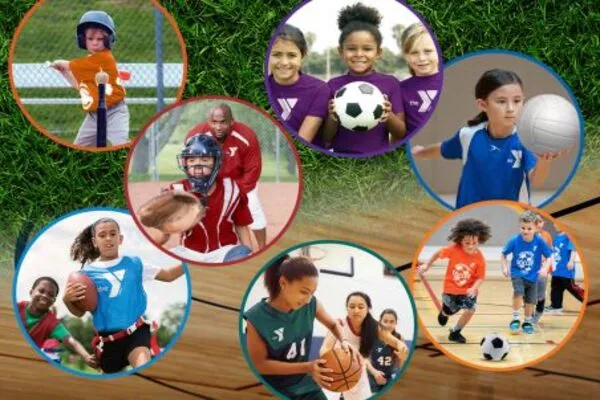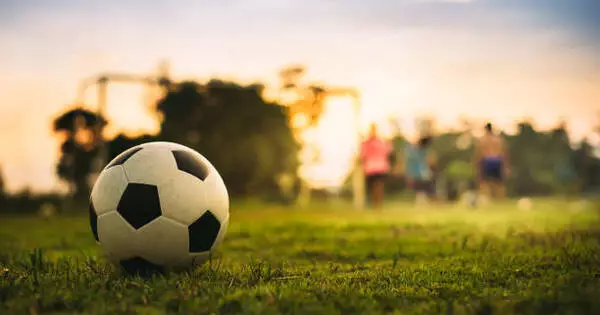Sporting helps in many ways other than the physical. It develops character, teaches analytical and strategic thinking, leadership skills, goal setting, and much more. You could encourage your child or people in general to participate in sports because physical activity is good for both the mind and the body. People who participate in sports may develop character and behavioral traits that help round out their personalities. Sports and games are crucial in the development of human personality.
Another reason for children to participate in organized sports: A new study suggests that they can develop the “grit” that will help them overcome challenges as adults. Grit is defined as a combination of passion and perseverance that assists people in achieving long-term goals. This new research found that adults who played sports as a kid scored higher on a measurement of grit than adults who didn’t play at all or said they quit.
According to Emily Nothnagle, lead author of the study and recent graduate of The Ohio State University, the findings suggest that the lessons children learn in sports can have a long-term positive impact on their lives.
“Kids who participate in sports learn what it’s like to struggle as they learn new skills, overcome challenges, and bounce back from failure to try again,” Nothnagle said. “The grit they develop through sports can help them for the rest of their lives.”
But all is not lost for adults who didn’t play as children – the study also found that adults who said they participated in sports during the past year showed more grit than those who didn’t, said study co-author Chris Knoester, associate professor of sociology at Ohio State.
Kids who participate in sports learn what it’s like to struggle as they learn new skills, overcome challenges, and bounce back from failure to try again. The grit they develop through sports can help them for the rest of their lives.
Emily Nothnagle
The study was published recently in the journal Leisure Sciences. Survey data came from the National Sports and Society Survey (NSASS), sponsored by Ohio State’s Sports and Society Initiative. The survey was completed by 3,993 adults who volunteered to participate through the American Population Panel, run by Ohio State’s Center for Human Resource Research.
Participants, who live in all 50 states, answered the survey online between the fall of 2018 and spring of 2019. Because NSASS participants are disproportionately female, white and Midwestern, the researchers weighted the survey results to reflect the U.S. population more accurately.
Participants were asked to rate themselves on a scale of 1-5 on eight statements, including “I work hard. “I never give up,” and “I work hard.” None of the statements had anything to do with sports. Initial findings revealed that 34% of those who participated in sports as children scored high on the grit scale, compared to only 23% of those who did not. In addition, 25% of those who never played sports scored low on the grit scale, compared to 17% of those who did.
These findings were also supported by more sophisticated statistical analyses that took into account respondents’ demographic characteristics. However, in order to reap the benefits of sports participation, children must persevere and play on a regular basis, according to the findings.
“Adults who played youth sports but dropped out did not show higher levels of grit. They actually demonstrated lower levels of grit after we included a proxy measure of how sports mattered for the development of grit while growing up,” Knoester said.

Respondents’ perceptions of how their athletic experience affected their work ethic served as the proxy measure. “Quitting may indicate a lack of perseverance, which is an important component of grit. It may also make quitting an activity and not persevering the next time easier.”
Adults who participated in sports as children reported that the experience improved their work ethic. And that perception was linked to their adult grit scores. Even after controlling for this finding, sports participation increased grit scores, according to the findings.
“Sport participation seems to have improved people’s development of grit even more than they realized,” Nothnagle said. But could some people just be born with the grit to help them succeed at sports as a young person and then continue to benefit from that trait as an adult? Knoester said this study can’t definitively prove the answer to that question, but the results suggest that people can gain or lose grit throughout life.
Adults who reported regularly participating in sports in the previous year demonstrated higher levels of grit, regardless of whether they played sports as a child or how much they felt their athletic experiences influenced their work ethic while growing up.
“This additional finding about adult sports participation suggests that you can build and possibly lose grit at different points in your life,” Knoester said. “It is not a static quality.”
Participants in the study were not asked how they participated in sports as adults. According to the researchers, it is possible that many of them challenged themselves through personal training or workouts rather than through organized sports as children.
Nothnagle cautioned that the findings should not be interpreted as implying that grit has no drawbacks. “There may be problems if you use grit without limits. An overemphasis on grit in sports can lead to some people overtraining and injuring themselves, for example, “She stated. However, the findings suggest that, in addition to the health and other benefits of sports, the development of grit may have a positive impact.
“Sports provide a valuable place in society where you can work hard, practice, and take it seriously, but it is also not real life to some extent—typically, sports are thought of as a separate sphere of life, and the stakes in sports are not as far-reaching and extreme,” Knoester explained. “But you can take those lessons you learn and practice in sports, such as building grit, and apply them in your life outside of sports in very useful ways.”
















